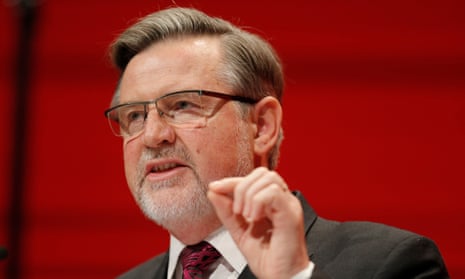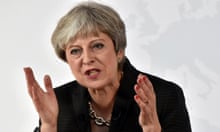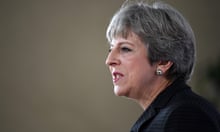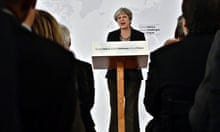Members of Labour’s shadow cabinet are at loggerheads over whether Britain can hope to remain in the customs union when it leaves the EU, the Guardian can reveal.
Barry Gardiner, the shadow trade secretary, has argued that the only option open to the UK would be a Turkey-style customs agreement, but claimed that such a deal would be “a disaster” as it would leave the UK in a weak position.
However, the shadow Brexit and foreign secretaries, Keir Starmer and Emily Thornberry, have told senior Labour colleagues that Britain could negotiate a better deal than Turkey and should be trying to do so.
They have said that negotiating a form of membership of the customs union, under which European countries negotiate trade deals collectively and have a common external tariff, must be kept on the table.
One shadow cabinet member told the Guardian that they were surprised Gardiner had made his comments publicly as the issue “was not settled” within the Labour party.
They revealed that Starmer and Gardiner had clashed over the positioning in meetings – with the issue creating tensions around the shadow cabinet table.
Another member of Jeremy Corbyn’s top team claimed the shadow trade secretary must have been speaking in a personal capacity “because that is not Labour party policy”. They claimed Starmer would be furious about the intervention, and profoundly disagreed with his colleague.
Gardiner’s argument, on the BBC’s Westminster Hour, was that leaving the EU would mean Britain automatically losing membership of the customs union. The only option, he suggested, would be to then sign a customs agreement similar to Turkey’s – under which the country replicates the EU’s trade deals.
“But the trouble with that is that it gives you an asymmetrical relationship with the third-party countries that the EU does a deal with,” Gardiner said, claiming it could result in the UK being forced to liberalise its markets to countries that do not have to do the same in return.
“It’s a disaster,” he said.
Starmer has made clear he thinks the customs union must remain on the table. Meanwhile, Thornberry has sided with the shadow Brexit secretary when the issue has come to a head in meetings, a source told the Guardian.
Gardiner also used the interview to claim that the UK would become a “vassal state” if it tried to replicate Norway, which has unfettered access to single market through its membership of the European Economic Area.
He said such a situation would fail to give the sovereignty over laws and borders that people wanted through the leave vote, he said, adding: “To adopt the Norwegian situation would be to become a vassal state, because you actually end up paying money into the EU budget but you have less control over the regulations than you do now with a seat round the table.”
The question of the single market is opening up another potential divide for Labour after Corbyn also insisted the UK would have to leave the grouping when Brexit takes place.
Labour’s leader in Wales, Carwyn Jones, claimed there was “no need to leave the single market even as we leave the EU”. The Welsh first minister told the BBC that the UK had one of the world’s largest markets on its doorstep, and that Britain should pursue a Norway-style option within the European Economic Area.
Although Carwyn conceded this was not full membership as Norway does not have a say, he said it was a better option that leaving completely. “We would not control the rules, but we would have full and unfettered access,” he said.
The issues are causing tension in the Labour party after a number of backbenchers said they would fight to remain in both the single market and customs union, and a poll of members found overwhelming support for retaining membership.
The figures, from research carried out as part of the Party Members Project funded by the Economic and Social Research Council and shared exclusively with the Guardian, also show heavy backing for a second referendum.










Comments (…)
Sign in or create your Guardian account to join the discussion